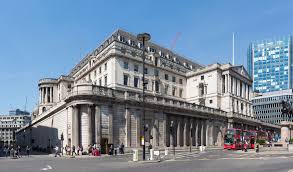British Pound Declining in Value
Four months after the historic Brexit vote in June, the British pound sterling continues to experience a decline in value. During the early morning hours of October 11, the new Bank of England Exchange Rate Index signalled that the pound had hit its weakest level ever against a trade-weighted basket of international currencies, with an exchange rate of $1.2091 to the pound.

Depreciation of the pound sterling began on June 23 when Britain announced that it had voted to leave the European Union (EU). That night, the British pound fell more than 10 percent, with the exchange rate dropping from $1.47/£ to $1.34/£, its lowest value since 1985. Since June 23, the pound has suffered an accumulated drop in value of around 15 percent. In this month alone, it has fallen by over 5 percent, including a drop of 4.2 percent just last week.
The reason for such decline lies in the economic uncertainty surrounding Britain’s exit from the EU. In recent weeks, the new British prime minister, Theresa May, has indicated that “the UK will begin the formal Brexit negotiation process by the end of March 2017,” by invoking Article 50 of the Treaty on European Union. She has also confirmed that Britain will not be flexible on the issue of free movement of people and may, therefore, end up forfeiting full access to the European single market.
British politicians and market makers in the country have termed this action a Hard Brexit. This means that Britain will introduce stricter controls on movement of EU citizens in an attempt to curb immigration and may, as a result, lose its free access to trade in the EU single market.
Major British companies and business leaders are concerned that European governments will levy significant additional taxes and fees on British goods if Britain loses full access to the single market, which will lead to a decline in the level of business between British firms and their European partners.
This decline in the value of the currency does not bode well for importers and British holidaymakers. It does, however, support British export industries by increasing the flow of exports out of the country and by attracting foreign investment to British companies and the esteemed British real estate market. Britain’s trade deficit, conversely, has been on the rise. The decline in the value of the pound should eventually have a positive impact on lowering this deficit. Because of the lower value of the pound, investors who hold foreign currency will have a stronger spending power in Britain, attracting investment inflows from around the world.
Nigel Farage, leader of the U.K. Independence Party and key supporter of Brexit, believes that London will remain a center of business. In an interview with The Caravel on October 8, he attested to London’s superiority over other European cities, claiming that “Paris isn’t friendly to business, and Frankfurt, frankly, is a dump.”
The volatility in the exchange rate is likely to continue as Brexit negotiations commence, with other factors such as the central bank interest rate for Britain and the US having a direct effect on this volatility. The negotiations of the coming months, then, will determine the fate of the pound, as the global currency and financial market anxiously looks on.
